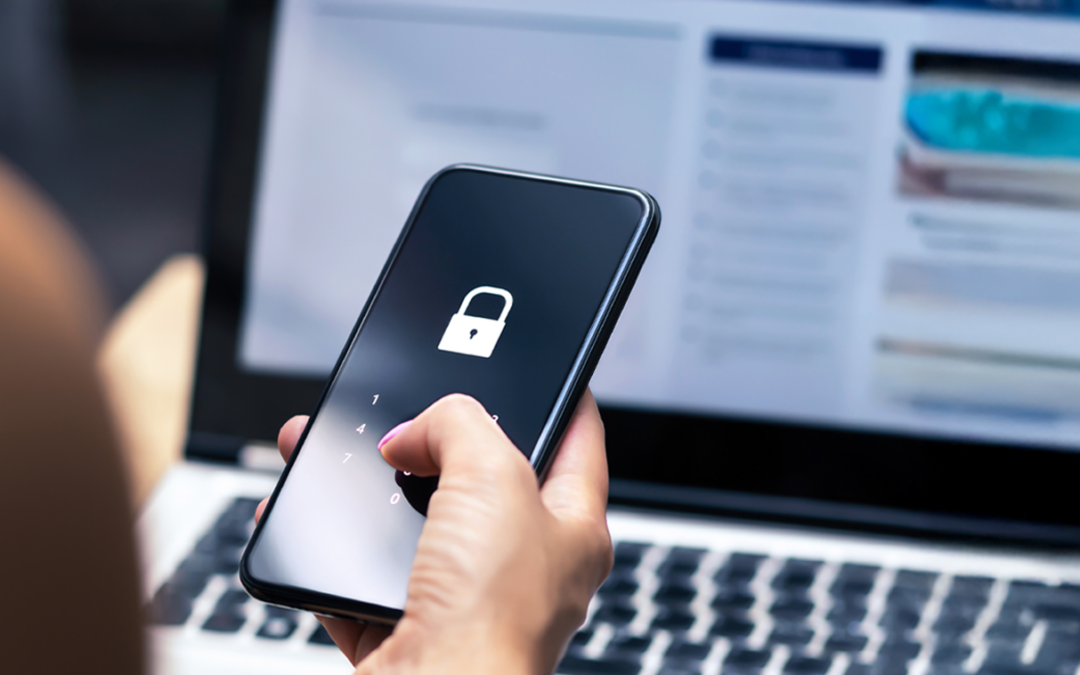What to know about different types of scams and how CyTek can be your best defense
Today, scams are more intricate than they’ve ever been. Thanks to rapidly developing artificial intelligence and the increasing prevalence of ChatGPT, bad actors can now use these tools for their own illicit purposes.
Learning more about scams can help you avoid them in the first place. Of course, the team here at CyTek is always available to answer your questions. For instance, if you’re wondering whether an email about upgrading your iPhone for free is a scam, then don’t hesitate to contact us online at any time.

Three Types of Scams
For the most part, scams can be broken down into one of three categories:
- Phishing (email)
- Vishing (phone calls)
- Smishing (text messages)
All three types of these scams are usually more common during times of heightened consumer activity. Whether it’s the holidays, Black Friday or Prime Day, you’re much more likely to encounter a scam if people are buying things en masse. Although vishing and smishing are becoming more prominent by the day, the classic phishing scam is still the most common type of cyber-crime.
Six Lines of Defense
Beyond this, we offer several additional layers of protection. There are six lines of defense that we provide for our clients. We’ll dive into them below:
Security awareness training: When it comes to combating scams, education is paramount. Learning how to recognize scams and keeping up with the latest trends can help you notice them right off the bat. CyTek provides security awareness training, which includes annual and weekly courses, quizzes and more. If you notice a scam in your work email, then you can either report it to your office manager, your team or directly to us
Firewalls: A firewall is a network security system that monitors incoming and outgoing traffic. Think of it as a barrier between a trusted network, such as your computer or server, and an untrusted network, such as, well, anything on the internet! These should always be installed on your device to prevent malware and other infected programs from making their way on to your computer.
Vulnerability management: Your next line of defense is CyTek’s vulnerability management. This involves an analysis of all your potential holes in your network. Once we’ve identified those gaps, we’ll patch them up. Throughout the month, we’ll run numerous security patches that keep your systems up to date, ensuring your data stays risk resilient.
MFA: Bear with us, as we now enter the land of acronyms. Multi-factor authentication (MFA) is one of the most critical elements of cybersecurity. For your desktops, virtual private networks (VPNs) and Office 365 accounts, we always recommend having MFA set up. This line of defense also includes password management. Here at CyTek, we like to say that you should know only two passwords: one to get on your computer and one to access your password manager. If you remember any of your other passwords, then they aren’t strong enough. Make sure the management system creates your password, too, to keep you more protected from scammers.
MDR: Managed detection and response (MDR), as the name suggests, is our response protocol when you accidentally click on a link from a scammer. When this happens, don’t be embarrassed! It’s always best if you let us know immediately so we can get everything taken care of. That’s what we’re here for. We’ll clean everything up, review what happened and give you the information you need.
EDR: That brings us to endpoint detection and response (EDR). This is like MDR, but EDR is proactive whereas MDR is reactive. Through EDR, CyTek can prevent cyberthreats from attacking your systems in the first place by continually monitoring your infrastructure and constantly assessing your tech’s strengths and weaknesses.
Three Common Signs of Scams
So, how do you know if something is a scam or not? In most cases, scams share three common features that will help you identify them. To give you a better idea of what to be on the lookout for, we’ve listed them here:
- Poor spelling and grammar: Are there quite a few misspellings and grammatical errors? If so, then it’s likely a scam. You can also copy and paste the sending email address into a search engine to see if it’s legitimate.
- Too good to be true: When something sounds too good to be true, it likely is. Trust your gut if you’re feeling iffy about something.
- Urgency: If the subject line is written in all caps, or if it’s claiming your package was delivered to the wrong address (supposedly from UPS, USPS or FedEx), then it could be a scammer. Scams often rely on a sense of urgency and reach for users’ emotions to get them to click or download something.
Staying one step ahead of scams requires vigilance, knowledge and the right tools. While scammers are constantly evolving their tactics, you don’t have to fight them alone. CyTek’s comprehensive security solutions — from awareness training to proactive monitoring — ensure your team stays protected and prepared. If you’re ready to secure your systems, avoid costly disruptions, and eliminate the stress of cyber threats, reach out to CyTek today. Whether you’re suspicious of an email or want to strengthen your defenses, we’ve got your back. Let’s make scams a worry of the past — contact us now to get started!

